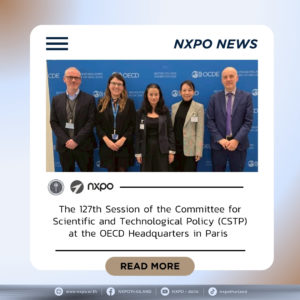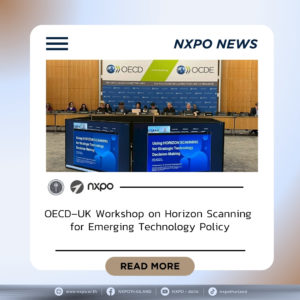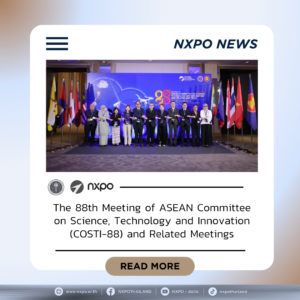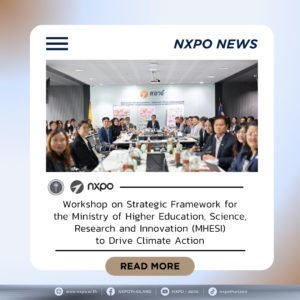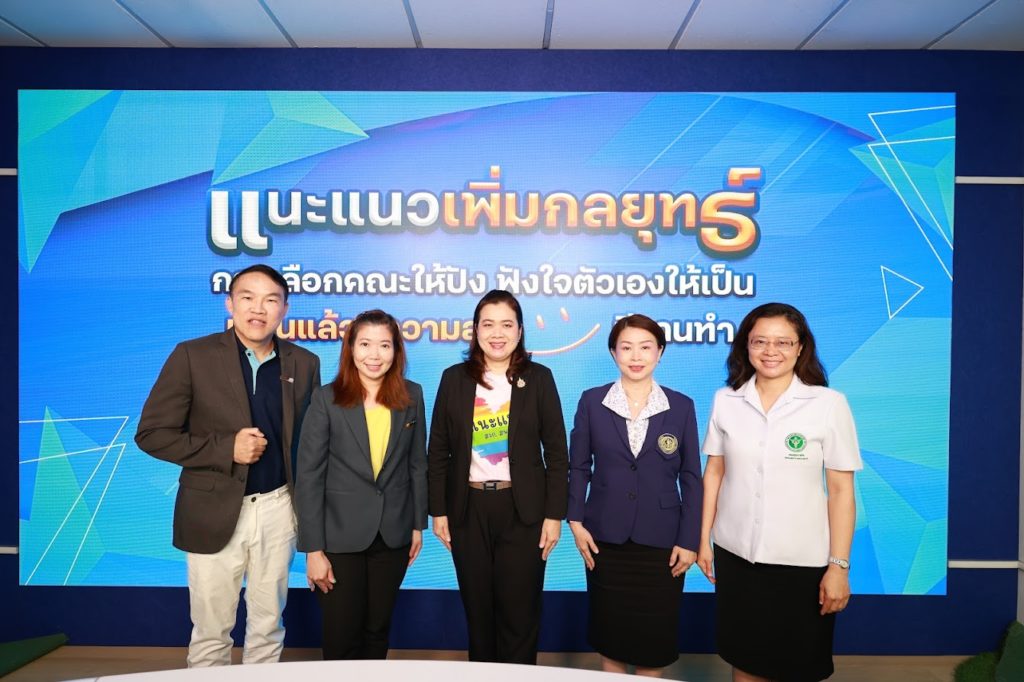
Ms. Panisa Harnpathananun, Director of the Higher Education Innovation and Future Skills Development Division at NXPO, served as a guest speaker in a university and career guidance seminar hosted by the Office of the Basic Education Commission (OBEC) on 21 April 2025.

During the session, Ms. Panisa shared insights into global labor market trends and introduced NXPO’s Thailand Talent Landscape 2025–2029 project, which projects workforce demand based on survey data from more than 300 enterprises. The findings provide a critical foundation for shaping national policy and workforce development strategies.

According to the study, Thailand will require approximately 1,087,548 specialized job positions over the next five years across ten target industries: including 1) next-generation automotive, 2) smart electronics and industrial robotics, 3) high-value and wellness tourism, 4) agriculture and biotechnology, 5) food processing and future food, 6) aviation and logistics, 7) fuels, chemicals, biotechnology, and green economy, 8) creative industries, 9) digital industries, and 10) integrated medical services. Among these, the digital industry, smart electronics and robotics, and aviation and logistics are projected to have the highest demand for skilled labor.
Ms. Panisa highlighted high-demand occupations and future skill sets within each sector. In the food processing and future food industry, roles such as sales representatives, food scientists, food marketers, technology and business analysts, and quality control specialists are in demand. Key competencies include food science and technology, food innovation design, laws and regulatory knowledge, and nutrition. In the creative economy, content creators, copywriters, editors, and graphic designers are among the most sought-after professions, requiring expertise in digital marketing, design, media literacy, and creative management.
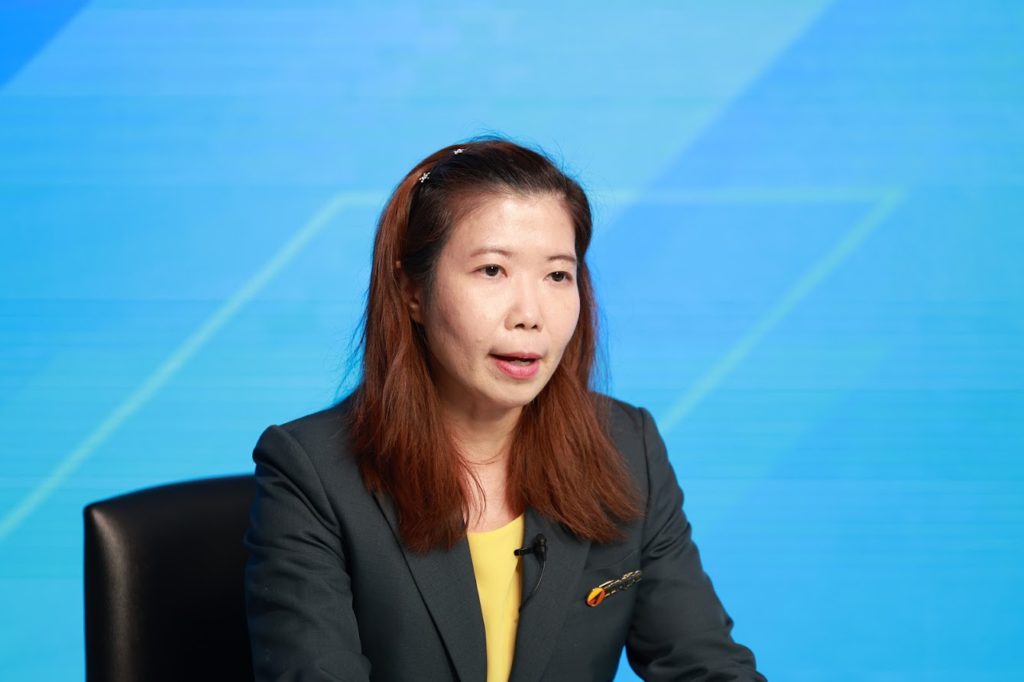
She emphasized that universities are actively adapting to these changing needs by revising curricula, emphasizing competency-based education, and expanding work-integrated learning opportunities.
“Universities are now taking on a broader role beyond traditional classroom teaching. They are supporting lifelong learners and introducing flexible learning models where students gain hands-on experience alongside their studies. Curricula are becoming more personalized and learner-centered, with digital platforms integrated to support career readiness in emerging fields,” said Ms. Panisa.

Universities are also increasingly aligning their programs with labor market demands by incorporating feedback from employers. In response, the Ministry of Higher Education, Science, Research and Innovation (MHESI) has launched several initiatives to fill workforce gaps, including: 1) Higher Education Sandbox, 2) Industrial Tailor-Made Training, 3) Bootcamp and Job Placement, 4) National Credit Bank.
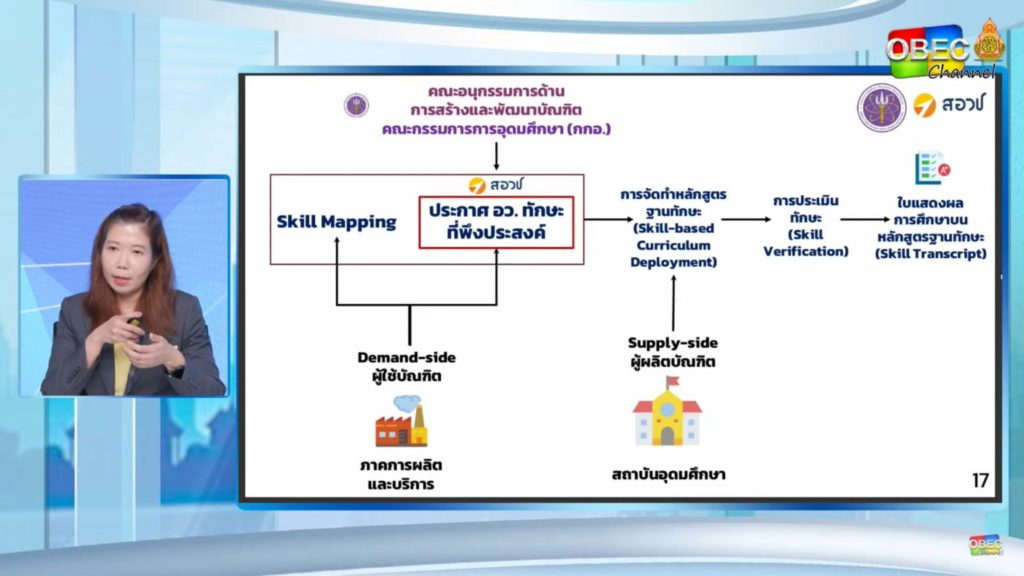
A key initiative is the Skill Mapping Platform, which collects employer feedback on required occupations and skill sets. This data supports curriculum redesign and helps assess whether graduates possess competencies aligned with market needs. Additional initiatives include the GenNX Model by Generation Thailand, Work-integrated Learning (WiL), and the STEMPlus Platform, which is highly-skilled workforce development platform.
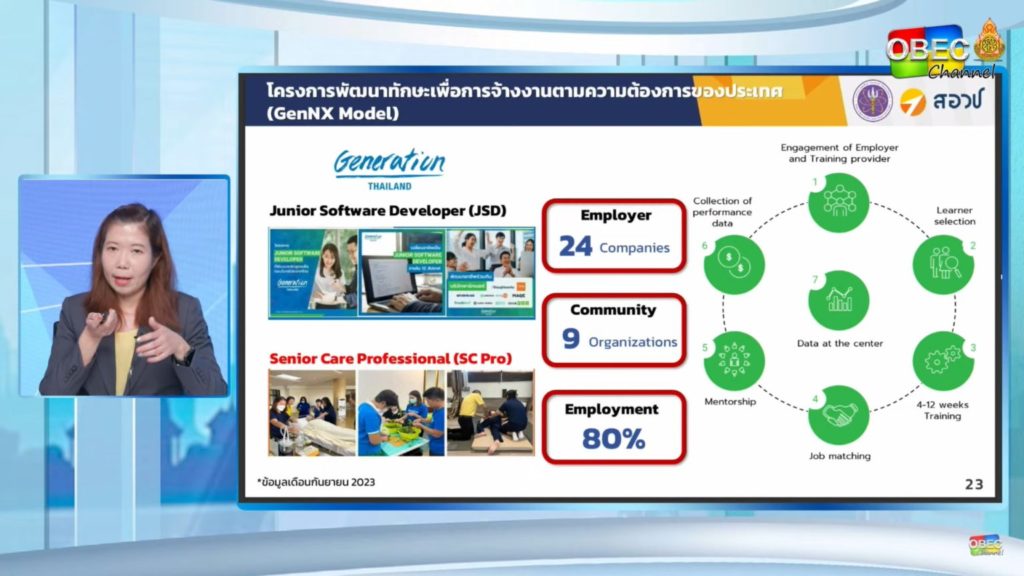
Photo credit: OBEC

